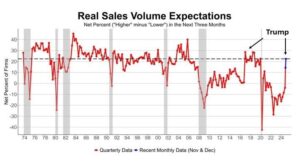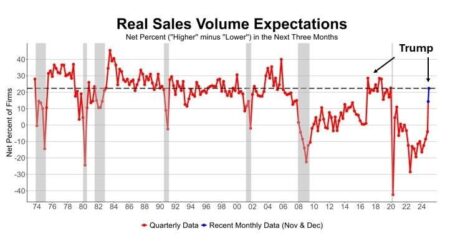Colleen Koch, neurodivergent Founder of NeuroKind, offers NeuroCoaching and Training that fuels sustainable growth and fosters connection.
This New Year, I want to extend an unexpected invitation: Do less.
I know, not very “New Year, New You” of me—but hear me out. In today’s technologically advanced, hyperconnected world, we often feel pressure to take on more:
• Become more available.
• Pursue the next rung in the corporate ladder.
• Figure out how to be a successful professional, parent, partner and person simultaneously.
Here’s the problem with all this constant striving: the more external work you take on, the less bandwidth you have for internal work.
Why is this a problem? Well, if the past decade of neurocoaching and research have taught me anything, it’s this: Your quality of life will largely be defined by how you feel, how you make others feel and how much control you have over either of those things.
All of this hinges on your level of self-knowledge and social-emotional intelligence. This insight may feel counterintuitive, given our cultural focus on constantly pursuing, achieving and earning more. Yet the evidence is clear and consistent: The path to personal satisfaction and professional success should begin within.
Three Reasons To Make Space For Internal Work In The New Year
1. Your brain works better when it feels better.
The skills that best predict your ability to think, decide, act and connect in ways that will cultivate professional success and personal satisfaction fall under the umbrella of emotional intelligence (EQ). EQ can be defined as your ability to notice, name and regulate your own emotions, as well as your ability to notice, correctly identify and influence the emotions of others.
Your EQ—particularly your ability to regulate your emotions and cultivate psychological safety—directly impacts your cognitive capacity. In other words, developing your EQ can help make you smarter, more influential and more effective.
2. EQ can help improve your relationships.
Human beings are wired for connection, and those who actively learn and practice the skills of emotional intelligence are better positioned for not only elevated cognitive capacity but also for a greater capacity to connect. This matters because “close relationships … are better predictors of long and happy lives than social class, IQ or even genes.”
3. EQ makes for great leaders and profitable businesses.
The World Economic Forum’s Future of Jobs 2023 report highlights that businesses prize and prioritize traits linked to emotional intelligence, including resilience, curiosity, continuous learning, motivation and self-awareness. Other research supports this assertion; for example, after TalentSmart tested emotional intelligence alongside 33 other important workplace skills, they found that “EQ is the strongest predictor of performance, explaining a full 58% of success in all types of jobs.”
How To Level Up By Doing Less And Thinking More
The research is clear: If you want to achieve success and satisfaction, you should make room for the internal work of developing your self-knowledge and social-emotional intelligence. Here are some practical steps you can take to get started now:
1. Start your New Year’s vision work by clearly identifying your “desired future experience.”
What do you want your daily lived experience to look and feel like in 2025? Leverage that, rather than some externally imposed definition of success or happiness, to define your path forward. In my experience, those who achieve genuine success and satisfaction don’t focus on being productive—they focus on making an impact.
2. Consider your priorities, and remember that “up” is only one direction you can grow.
Is this the best year to pursue that promotion? Is there still room to grow in your current role? If not, are you prepared to take on the additional responsibility, visibility and scope a new role will entail?
If you’re an owner, ask yourself: Do you need to grow your business this year? Is there a purpose to this growth that directly contributes to your desired future experience, or is it simply something you think you should do?
As you consider your priorities, remember that thinking is the most important kind of doing and deserves as much (if not more) space on your daily action list.
3. Create a plan for 2025 that leaves you ample room to turn your attention inward.
• Once you’ve identified your desired future experience and corresponding priorities, take a moment to estimate how much time you would like to dedicate each day, week or month to moving those priorities forward. (E.g.: “Spend more time connecting to valued peers and leaders in my network—60 mins/day, five days/week.”)
• Next, ensure you have (or can make!) real time to bring those goals to life. Get out a blank weekly calendar template, and start by adding the time you want to dedicate to each priority.
• Fill in the rest of your commitments around the times you’ve set aside to make progress on your priorities.
• Finally, apply this template to your actual schedule, with the goal of aligning the template (your ideal allocation of time in the new year) with your real daily/weekly schedule within four weeks.
4. When in doubt, choose people over productivity.
Ask yourself, “When this is all over, what will I regret most? Not closing that one deal? Or not making time for the people who matter most?” Whether that means paying more attention to cultivating your professional network or learning to leave work at work, prioritizing your relationships can help you advance your career, improve your life and feel good at a core level.
Final Food For Thought
In the rush to achieve more, we often overlook the simple yet transformative power of doing less. This New Year, allow yourself the grace to slow down, reflect and prioritize the internal work that can fuel both your growth and your success. By cultivating EQ, deepening your relationships and aligning your goals with your desired daily experience, you can unlock a level of clarity and satisfaction that constant striving cannot provide. Here’s to a year of mindful progress—where doing less is the catalyst of becoming more.
Forbes Business Council is the foremost growth and networking organization for business owners and leaders. Do I qualify?
Read the full article here











